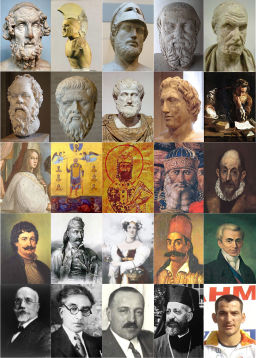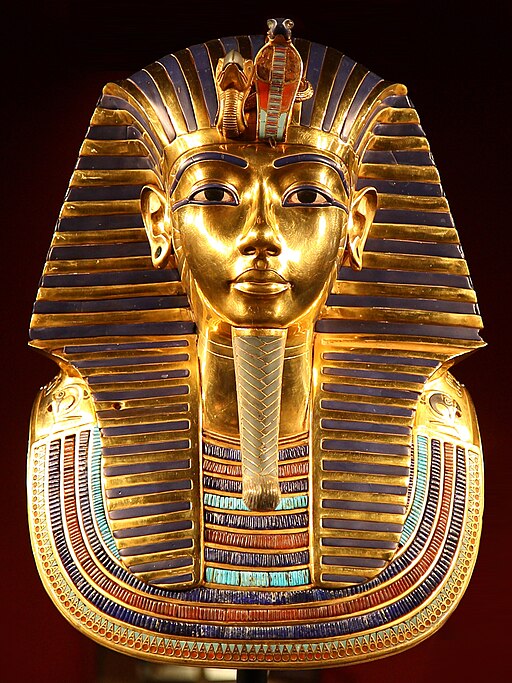
This “Constitution of the Athenians” is a copy of the original writings of Aristotle or one of his students. It was preserved on two leaves of a papyrus codex discovered at Oxyrhynchus, Egypt, in 1879.
The codex describes the political system of Classical Athens, commonly called the Areopagite Constitution, written between 328 BC and 322 BC.
The work deals with the different forms of the constitution and the city’s institutions, including the terms of access to citizenship, magistrates, and the courts.
In other ancient documents, several ancient authors state that Aristotle assigned his pupils to prepare a monograph of 158 constitutions of Greek cities, including a constitution of Athens.
It is assumed that this project was part of his research into his study of Politics and that Aristotle composed the Athenian text himself as a model for his students, due to the importance of Athens.
On the other hand, several prominent scholars doubt that Aristotle wrote it, and the controversy over the authorship of the work continues today.
If it is a genuine writing of Aristotle, then it is of particular significance because it is the only one of his surviving papers that were intended for publication.
Modern historians claimed that the discovery of this treatise contains factual information not found in any other surviving ancient text.
Areopagite Constitution
The Areopagite constitution is the common name for a period in ancient Athens described by Aristotle in his Constitution of the Athenians.
According to that work, the Athenian political scene was dominated, between the late 470s BC and 462 BC, by the Areopagus, a traditional court composed of former magistrates.
Discovery of the Papyrus
In a dry climate, like that of Egypt, papyrus is stable, formed as it is of highly rot-resistant cellulose. However, storage in humid conditions can result in molds attacking and destroying the material.
In European conditions, papyrus only lasted a few decades, and a 200-year-old papyrus was considered extraordinary.
Imported papyrus once commonplace in Ancient Greece have since deteriorated beyond repair, but papyri are still being found in Egypt.
This lost document was lost to history until this the papyrus codex carrying part of the text was discovered in Oxyrhynchus, Egypt in 1879,
A second, more extensive papyrus text was purchased in Egypt in 1890. The papyrus text is now held in the British Library.
Corpus Aristotelicum
This Aristotelian text is unique because it was not a part of the Corpus Aristotelicum.
The Corpus Aristotelicum is the collection of Aristotle’s works that survived from antiquity through the medieval manuscript transmission.
These texts, which do not include Aristotle’s works that were lost or intentionally destroyed, are technical philosophical treatises from within Aristotle’s school.
It is from Aristotle’s teachings that the West inherited its intellectual lexicon, as well as methods of inquiry.
Aristotle’s philosophy has exerted a unique influence on almost every form of knowledge in the West, and it continues to be a subject of contemporary philosophical discussion.
Papyrus
Papyrus is a material similar to thick paper that was used in ancient times as a writing surface. It was made from the pith of the papyrus plant.
Papyrus can also refer to a document written on sheets of such material, joined together side by side, and rolled up into a scroll, an early form of a book.
Papyrus is first known to have been used in Egypt and was later also used throughout the Mediterranean region.
Library papyrus rolls were stored in wooden boxes and chests. Papyrus scrolls were organized according to subject or author and identified with clay labels that specified their contents without having to unroll the scroll.
Aristotle
Aristotle (384–322 BC) was a Greek philosopher and polymath during the Classical period in Ancient Greece. Taught by Plato, he was the founder of the Lyceum and the Aristotelian tradition.
His writings cover many subjects, including scientific, metaphysics, logic, ethics, arts, rhetoric, psychology, linguistics, economics, politics, and government.
He established a library in the Lyceum, which helped him to produce many of his hundreds of books on papyrus scrolls. Only around a third of his original output has survived.
Oxyrhynchus
Oxyrhynchus is a city in Middle Egypt located about 160 km south-southwest of Cairo. It is also an archaeological site, considered one of the most important ever discovered.
Since the late 19th century, the area around Oxyrhynchus has been excavated, yielding an enormous collection of papyrus texts dating from the Ptolemaic Kingdom and Roman Egypt.
Among the texts discovered at Oxyrhynchus are fragments from the Gospel of Thomas and fragments from Euclid’s Elements.
Initially, Oxyrhynchus was not considered an Ancient Egyptian site of any importance, so it was neglected in the early explorations of Egypt.
Then in 1896, two young British excavators began to excavate it, and they soon realized the unique combination of climate and circumstance had left at Oxyrhynchus, an unmatched archive of the ancient world.
The flow of papyri soon became a torrent, and the work continues today to discover and interpret a treasure trove of documents.
Constitution of Athens
- Title: Constitution of Athens
- Also: Athenian Constitution
- Greek: Ἀθηναίων Πολιτεία
- Date: 78 – 100
- Culture: Greek
- Writing: Greek
- Materials: papyrus
- Type: Ancient Texts
- Museum: British Library
The Constitution of Athens
Virtual Tour of Ancient Texts
- Gilgamesh Flood Tablet – 7th century BCE
- Lament for Ur – 1800 BC
- Law Code of Hammurabi – 1754 BC
- Book of the Dead – Papyrus of Ani and Hunefe – 1250 BCE
- Cyrus Cylinder – 539–538 BC
- The Rosetta Stone – 196 BC
- Constitution of the Athenians by Aristotle – 100
- Vindolanda Tablets – 1st-century
- Codex Vaticanus – 300–325
- Vienna Dioscurides – Juliana Anicia Codex – 515
- Blue Qur’an – 9th – 10th century
- Miroslav Gospel – 1186
- Hadith Bayad wa Riyad – 13th-century
- The Belles Heures of Jean of France, Duke of Berry – 1405
What did democracy mean in Athens?
Virtual Tour of Historically Influential Books
- Code Noir – 1687
- “Common Sense” by Thomas Paine – 1766
- “Poems on Various Subjects, Religious and Moral” by Phillis Wheatley – 1766
- Gardner’s Photographic Sketchbook of the Civil War – 1863
- Ancient Texts and Historically Influential Books
The Constitution of Athens – by Aristotle
The Politics of Aristotle
Athenian Democracy
~~~
“Man is, by nature, a political animal.”
– Aristotle, Politics
~~~
Photo Credit: 1) Aristotle / Public domain
Popular this Week








 Sponsor your Favorite Page
Sponsor your Favorite Page SEARCH Search for: Search Follow UsJoin – The JOM Membership Program
Sponsor a Masterpiece with YOUR NAME CHOICE for $5
Share this:
- Tweet
